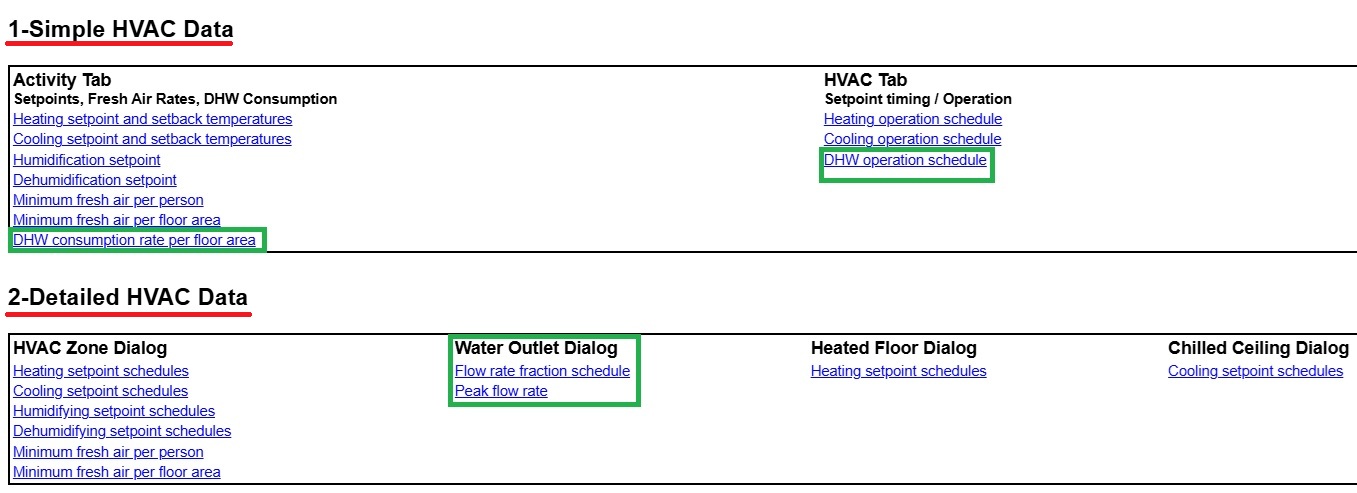DHW end USE - DETAILED HVAC
Hey everybody,
I am doing my thesis, which contains calculations of DHW usage. I am trying to figure out, how is calculated the end use of water systems. I have DETAILED HVAC. Just simple electric loop with one outlet and one DHW tank. When I run short simulation (1-2days) and cross check with simple Q = m * c * t (J) calculation, it doesnt get same number, so I suppose there is another way.. Do anybody know how it is calculated?









@rchrd73 by "Detailed HVAC", do you mean you're defining individual HVAC components in the EnergyPlus IDF instead of using HVAC templates, or are you using "Detailed HVAC" mode in an EnergyPlus interface (e.g., DesignBuilder)?
I am using detailed HVAC mode in Designbuilder.
Hi, Can you please be more specific? Do you have a water heater with electric resistance heating? Is that coil autosized? is the tank size autosized? What is the setpoint temperature? the end use water systems is the energy of the fuel source consumed (electricity, natural gas). This is a function of the efficiency of the component and the load.
Hi, I just have the simpliest, default DHW loop with electric boiler in Designbuilder. Everything is set to default and autosize. Setpoint for water is 55 degrees.